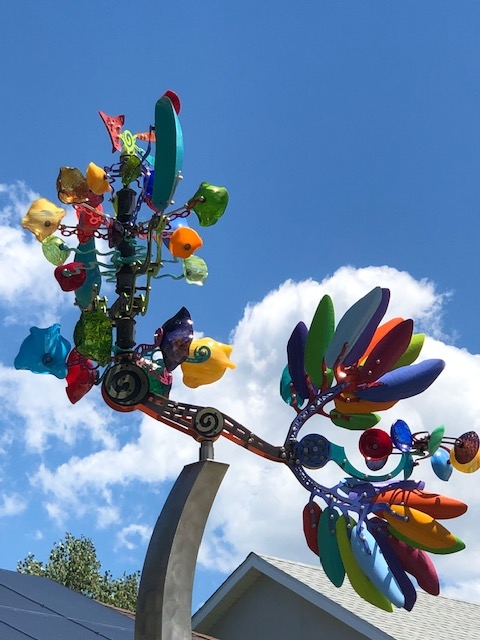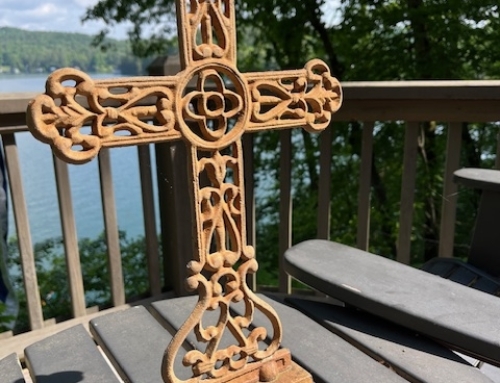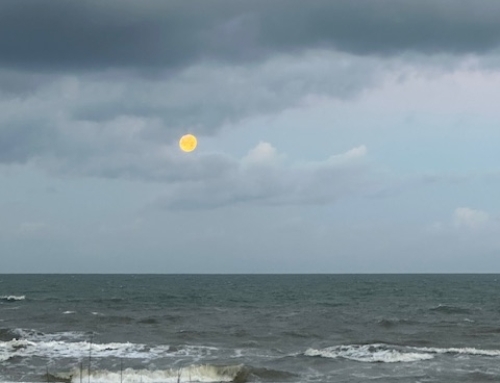
Good morning…
“This is not God’s will,” the minister said at the celebration of Eliza’s vivacious, twenty-eight year old life. “This is outside the will of God, but not outside the love of God,” he tried to explain the deep mystery of grief. But I had just written in our blog post, “I entrust Eliza’s life to God’s higher will and God’s impeccable timing.”
So which is it?
Was Eliza’s release from a cancer-riddled body not God’s will or a gracious part of God’s higher will? Or could it perhaps be both?
Cancer. Early death. Blindness. Tragic accidents. Addictions. The pain of poverty. Disease and divorce, dementia and depression. Are these too common human experiences inside or outside the will of our loving God?
Whenever I am struggling to understand the tragic events unfolding before our eyes, I pull from my bookshelf a timeless treasure written by pastor Leslie D. Weatherhead in 1944. I return again to the first words in the first chapter.
******
The Will of God by Leslie D. Weatherhead
The phrase “the will of God” is used so loosely, and the consequence of that looseness to our peace of mind is so serious, that I want to spend some time in thinking through with you the whole subject. There is nothing about which we ought to think more clearly; and yet, I sometimes think, there is nothing about which men and women are more confused.
Let me illustrate the confusion. I have a good friend whose dearly loved wife recently died. When she was dead, he said, “Well, I must just accept it. It is the will of God.” But he is himself a doctor, and for weeks he had been fighting for her life. He called in the best specialists in London. He had used all the devices of modern science, all the inventive apparatus by which the energies of nature can be used to fight disease. Was he all that time fighting against the will of God? If she had recovered, would he not have called her recovery the will of God? Yet surely we cannot have it both ways. The woman’s recovery and the woman’s death cannot equally be the will of God in the sense of being his intention.
Let me illustrate the confusion again. “My boy was killed ten days ago in one of the raids on Berlin,” said a woman, “but I am trying to bow to the inscrutable will of God.” But was that the will of God? I should have said it was the will of the enemy, of Hitler, if you like, or the evil forces we were fighting. Are they then the same thing?
Here is a mother wringing her hands and weeping in anguish because her baby is dead. Her minister stands by her, longing to comfort her; but though his presence and prayers may offer consolation, he knows only too well that when the storm is raging it is too late to talk about the anchor that should have been put down before the storm began. What I mean is that it is so important that we should try to think clearly before disaster falls upon us. If we do, then in spite of all our grief we have a philosophy of life that steadies us as an anchor steadies a ship. If we do not, the storm is so furious that little can be done until it has abated. If only the minister could have injected into the mind of the woman his own belief about God! But that, alas! is impossible. In her anguish, this is what the woman said: “I suppose it is the will of God, but if the doctor had come in time he could have saved my baby.” You see the confusion of thought? If the doctor had come in time, would he have been able to outwit the will of God?
******
I know these conflicting thoughts are quite confusing, but I agree with Weatherhead, I think there is value in struggling to develop an authentic philosophy of life that steadies us amid life’s storms, as an anchor steadies a ship. To that end, let’s prayerfully consider these three questions as we walk through our day:
- What words would you use to describe your own anchor of faith in the tumultuous tide of God’s evolving will?
- Trying to make sense of all sorts of tragedies, what unanswered questions clog up your heart?
- How might you turn your woes, worries, and wonderings into an intimate conversation with our Creator?
You’re not the only ones plunged into these hard times. It’s the same with Christians all over the world. So keep a firm grip on the faith. The suffering won’t last forever. It won’t be long before this generous God who has great plans for us in Christ—eternal and glorious plans they are!—will have you put together and on your feet for good. He gets the last word; yes, he does (1 Peter 5:9-10, MSG).
…Sue…





